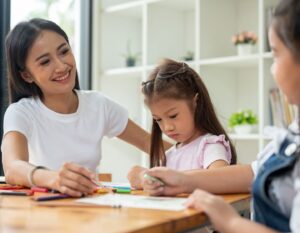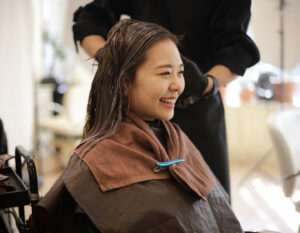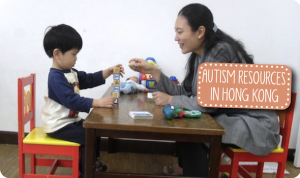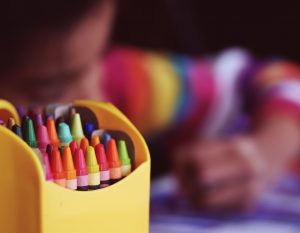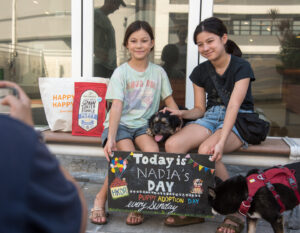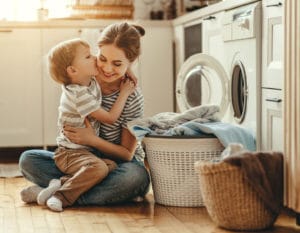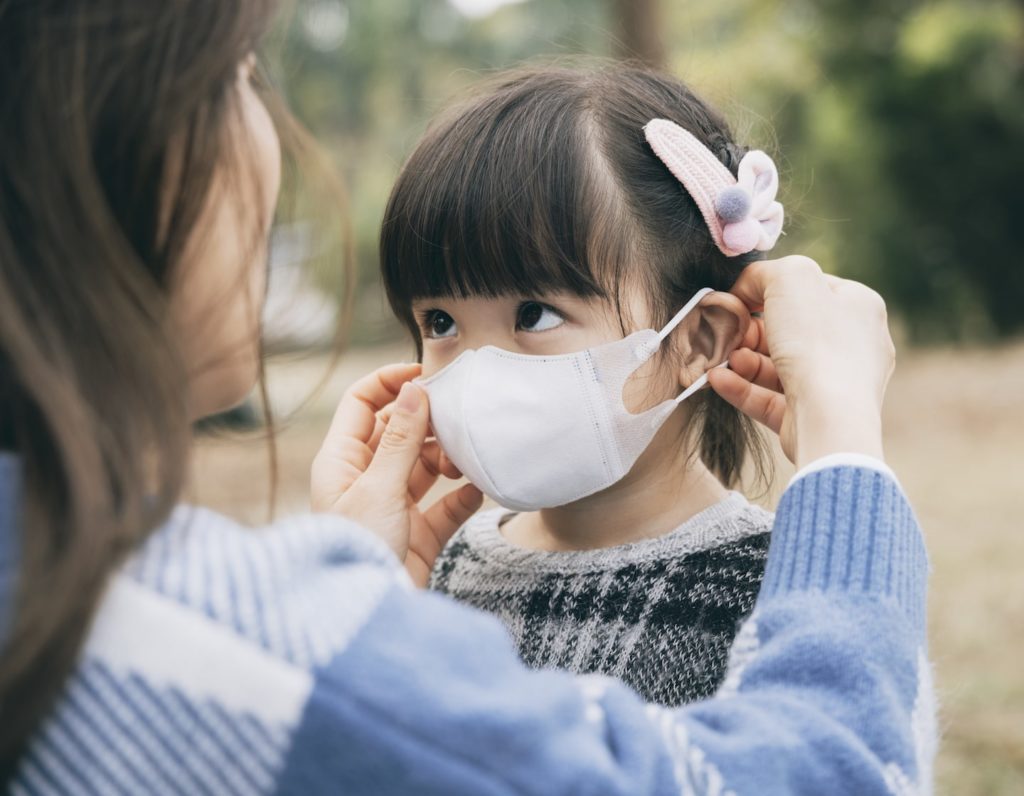
Since COVID-19, Hong Kongers have learned a lot about health and hygiene. But what happens when the reality of a global pandemic hits alongside a child who is already at risk with an immune deficiency? One mama shares the incredible story of her beautiful and strong daughter.
Masks, hand sanitiser and frequent washing, not to mention social distancing, are all the new normal. There is anxiety in the air, especially with the community spread during this latest “fifth wave” of COVID-19 that has everyone feeling a lot more vulnerable. We hear a lot about the effects of COVID on those with pre-existing conditions, maybe it even gives you a sense of safety in knowing your family is generally healthy. But what happens when you, or a family member, are already among those at risk? Cruzanne Macalligan shares her family’s story. She is mother to gorgeous toddler Novah, who also happens to be living with an immune deficiency — a condition made all the more frightening during the current pandemic.
Read more: Pregnancy In Hong Kong During The Time Of COVID-19
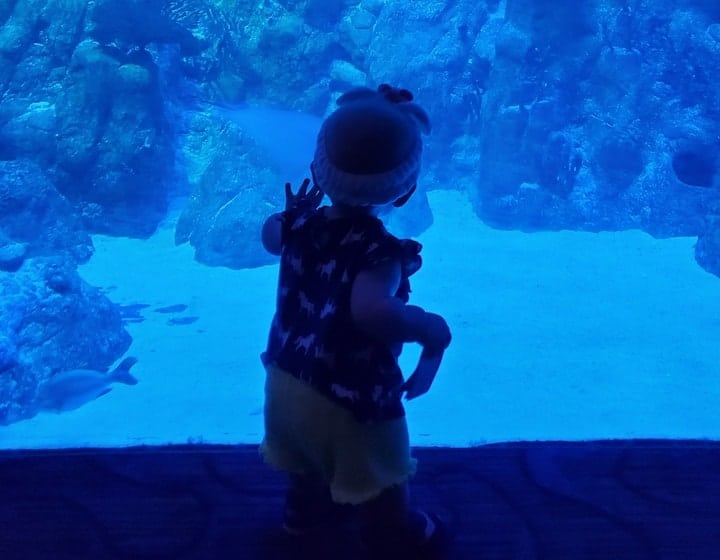
Pregnancy News: A Rocky Start
At my 21-week anomaly scan, we learned our daughter had a form of skeletal dysplasia or dwarfism. To us, that wasn’t bad news – people come in all shapes and sizes. The bad news was that her ribcage was small – very small – and her lungs might not have the space they needed to develop. We were given a 50/50 chance she would survive after birth. (If you’re curious, I wrote about the full experience on a personal blog that documented my pregnancy.)
Read more: Giving Birth In Hong Kong: Public Vs Private Hospital Options
We chose to take a chance on life. The rest of my pregnancy was amazing and terrifying in equal measure. Every scan seemed to show that things had gotten worse and worse for our girl, and when I was finally scheduled for a caesarian, three neonatologists would be standing by, ready to “go NASA”. Before I went into the operating theatre, my husband, Erin, and I whispered to my swollen belly,
“You just come out fighting, and we’ll take care of everything else.”
Welcome, Baby Novah!
Our daughter, Novah, was born pink, crying and full of life in June 2018 at Auckland Hospital, with the song Brass in Pocket by The Pretenders playing on the operating theatre radio. It was unbelievable. No one had expected her to make it. Our best-case scenario had been tubes and oxygen and tough decisions, but my baby girl was passed to me, immediately, all squashed and soft, and within the hour I was breastfeeding her for the first time.
Novah’s safe arrival flicked a huge switch in my life. She was here. She was breathing. She was absolutely perfect. Suddenly, everything else was an extra cherry on top. She’d come out fighting, and it was up to us to keep our part of the deal.
I’d spent months of my pregnancy poring over radiology lectures and reports, medical journals, YouTube seminars – you name it. So, when Novah arrived with a crop of the finest, fairest hair, and her X-rays revealed bowed femurs and a slightly bell-shaped chest, I said to Erin (quite proudly) “I know what type she has. She has Cartilage Hair Hypoplasia” (CHH).
But CHH has another, much more serious characteristic: variable immune deficiency.
Read more: Preparing For Birth In A Public Hospital In Hong Kong
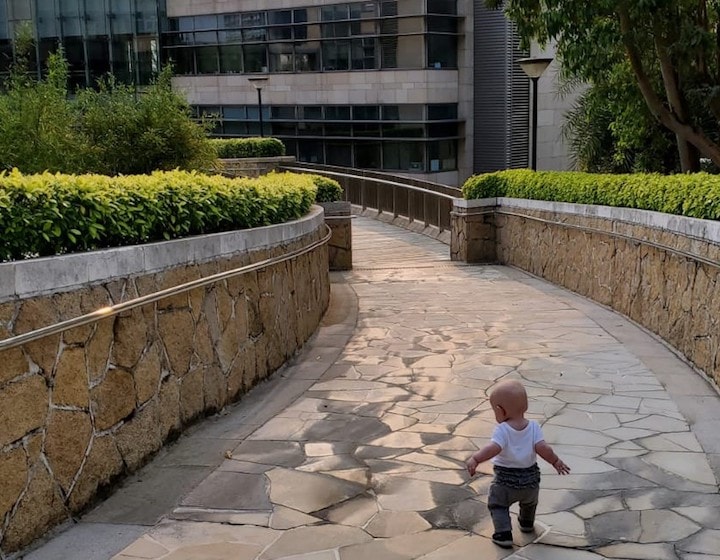
Another Diagnosis – Immune Deficiency
Our midwife arrived late afternoon and visibly holding back tears. I felt that familiar lump in my throat. The type you get before bad news. Novah’s newborn heel-prick blood test results had come back. “They can’t find an immune system,” she said. I couldn’t understand it. I looked down at this plump, healthy, clear-skinned baby girl. “How? She’s doing so well.” The midwife nodded, “I know. But they think she might have SCID.” and handed us a print-out on Severe Combined Immune Deficiency (SCID) (the only cure being a bone marrow transplant) and held me while I sobbed.
Novah needed more blood tests to confirm whether her condition was full-blown SCID or another form of immune deficiency. Watching my baby girl be pricked and milked of tiny drops of precious blood made me want to scream, but I rocked her, nursed her, and when she was down for a nap, had a good, long cry in the shower.
“Waiting for the immunologist’s call was like being plucked from the last square of a board game and placed back at the beginning. The waiting we had just endured throughout my pregnancy, repeating itself.”
When the phone finally rang, I held my breath the entire time the immunologist spoke, “She doesn’t have SCID, but her immune system is only around 15% of what a healthy baby’s is. Right now, she doesn’t need any treatment. We just need to watch and see how she goes.” He gave us a list of things to be careful about: handwashing, avoiding anyone who is unwell, and said they would do more blood tests in a few weeks.
We were given strict instructions that Novah was to have no live vaccinations because she had a very low number of T-cells, whose primary function is to fight viruses. That meant no BCG, MMR, varicella, or rotavirus. But we were cleared to travel back home to Hong Kong.
Read more: Children’s Vaccinations In Hong Kong: When And Where To Get Them
Our New, Super-Clean Normal
We wiped everything, twice. Anti-bac was our constant companion wherever we went. People who came into our home had to wash their hands immediately. Shoes off at the door. No public transportation, no crowds, no soil, no sand, no germs. Bath toys went into buckets of Milton. Anything that could be steam sterilised, was.
It was tough. My anxiety was relentless. Every meal I didn’t heat through, every toy she managed to put in her mouth without me wiping it first, every tiny suggestion of a sniffle — sent me into a spiral of anxiety and despair. I would constantly count down three days from every new venture or outing, just waiting for her to fall ill. I felt like nothing could be clean enough. Not even me.
“There were days that I would go to pick her up and then hesitate because I was scared I would pass something on.”
I constantly Googled how diseases, infections and illnesses are transmitted and contracted, and would draft up long lists of questions for her immunologist at Queen Mary Hospital. Her doctor would answer my endless stream of questions with so much patience:
“Can we keep our dog?” (Yes, just don’t let her play with its poo. Ha!)
“Can we take her swimming?” (No.)
“Can we give her fruit?”(Maybe only the ones which can be peeled – I microwaved berries for months.)
“How does a cold get from one person to another?” (Droplets. Maintain two-meter distance and you should be relatively well protected.)
Then, at one immunology appointment, her doctor stopped me mid-question and said, calmly, “You cannot live an unlivable life.” That’s when I realised I needed help. Fear and anxiety would not keep my daughter safe. I couldn’t live every day so terrified. I started seeing a wonderful counsellor, and slowly, learned to find a healthy rhythm.
Read more: Sassy Mama’s Round-Up Of Couples And Family Counsellors In Hong Kong
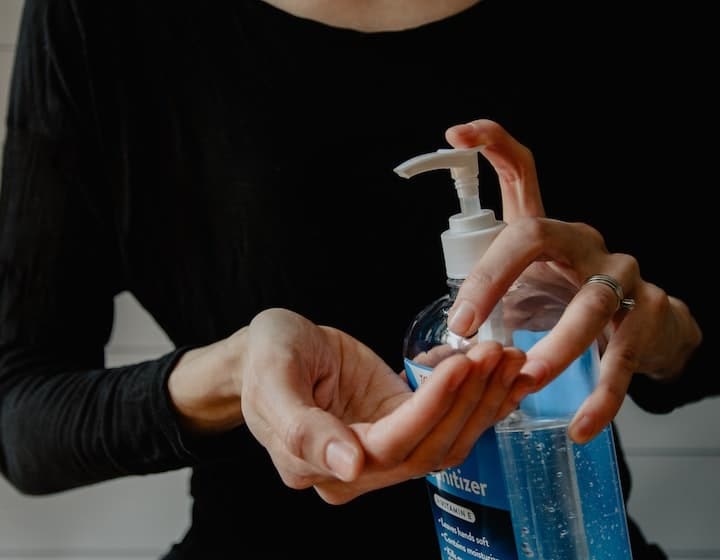
Regular Life In ‘‘Microbe City’’
Surprisingly, it wasn’t hard accepting that we couldn’t do some things that other families could do. We just focused on what we could do (comparison is the thief of joy, after all!). We found ways to have fun and keep Novah safe, even while living in our ‘‘microbe city’’ here in Hong Kong. We bought a secondhand car to take her around safely, took her to playgrounds (even if we wiped the slide, first), went to restaurants that weren’t too busy, took trips around Hong Kong’s country parks, and even travelled to see family in Gibraltar (spraying and wiping seats, rails, trays, tables and more, along the way).
Over time, her blood test results showed her immune system getting stronger, and in March 2020 at 21 months old, she was finally able to have her MMR vaccination. I wept with happiness. Now we could travel to the US and back to New Zealand to see family! Our world was opening up!
Back To Square One: COVID-19
Except it wasn’t. Because of COVID-19, we were back to square one, again. Now, though, we had an advantage. These “new” hygiene habits were a part of our lives.
Hand washing? Check.
Avoiding crowds? Check.
Finally, we didn’t have to ask people to take off their shoes, wash their hands, and stay away if they were sick. They were doing it!
Many reached out to us seeking a little insider wisdom for any tips and tricks because they were suddenly experiencing the anxiety and fears we’d been living with for so long. Of course, we were so happy to share, and for a time, felt a little less alone. We had so many positive, safe routines and places in our lives already, that it wasn’t that big of an adjustment to start wearing masks and spending a little more time in our “bubble”.
In that way, COVID-19 has been very equalising for us. Almost overnight, my child’s immune deficiency became something others could finally relate to and understand. The invisible part of her diagnosis had revealed itself. For a time, at least.
Read more: Hong Kong COVID Tests: PCR Tests, RATs And Community Testing Centres
Seeking Support
A friend once asked me “What’s the hardest part of being a parent of a child with a disability?” and I said, “Other people.” I can manage the doctor appointments, the future therapies, the conditions themselves, but I cannot control the ignorance and apathy of others – sometimes no matter how hard I try.
I am so lucky to have found Facebook groups for others with CHH and their parents. I am in the most incredible WhatsApp group with mums from around the world, whose beautiful children with CHH are around Novah’s age. Most are based in the US, but there are also mums from Sweden, Ecuador, and South Africa. Even though we’re worlds apart, and even though I have never met them in person, they are a constant font of wisdom, love and understanding. Sometimes, I feel like they’re the only ones who truly “get it”. As we have each dealt with this pandemic creeping up on us, then overtaking our lives, we have vented our frustrations, soothed one another’s anxieties and prayed for each other’s children through blood tests, procedures, surgeries, illness and more.
Read more: COVID-19 Vaccines In Hong Kong: Your Questions Answered
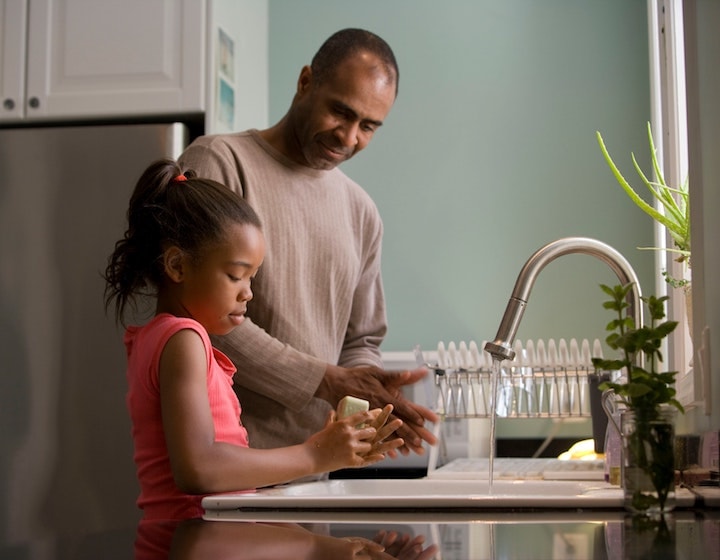
How You Can Help Those Who Are Vulnerable To COVID-19
In the age of COVID-19, I have leaned on those who understand, more than ever. It has broken my heart to see people around me here in Hong Kong boasting about “sneaky playdates” when we’ve been advised to socially distance, rolling their eyes at the quarantine requirements they have to abide by returning from overseas, laughing at how their husbands “refuse to wear a mask” – because of course, that is the definition of masculinity. Photos on Instagram of others out and about enjoying long, busy days in big groups over the last few months, can feel like personal jabs.
We may have created a world for our daughter where she’s safe and protected, but we still don’t know how COVID-19 would affect her, uniquely, because of her specific immune deficiency. The widespread message that contracting COVID-19 is only dangerous for the elderly or the immune-compromised, fails to capture that (shared in many of my Facebook groups) your ‘‘only’’ is my everything!
“Complacency can feel more contagious than COVID-19 sometimes, and I can’t help but wish others would stop and think about our community’s most vulnerable.”
When I see someone run down a crowded sidewalk, panting, mask-free, I want to yell, “IT’S NOT ALL ABOUT YOU!”. That’s what has been the hardest part about raising a child with an immune deficiency during this pandemic. To see people not doing some simple, easy things, just because they don’t feel this condition is as big a risk to them and their families as it is to others.
Not all disabilities are visible. Not all vulnerabilities are, either. What COVID-19 has taught us is that we are all human, all fallible and that your health and good fortune – and life – could change in a moment. We are all in this together, and that is exactly how it should be.
Read more: Families Living Apart During COVID-19: A Father’s First-Hand Account
Editor’s note: This article was originally published by Cruzanne Macalligan in August 2020 and updated in February 2022.
Do you have a story to share with our readers? Get in touch with our editorial team – [email protected]
 View All
View All


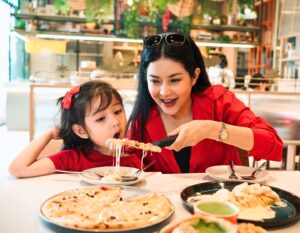





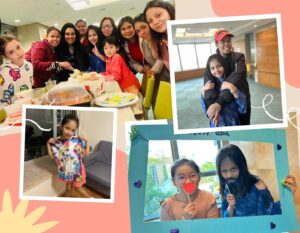


 View All
View All


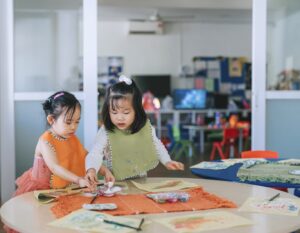


 View All
View All


 View All
View All
